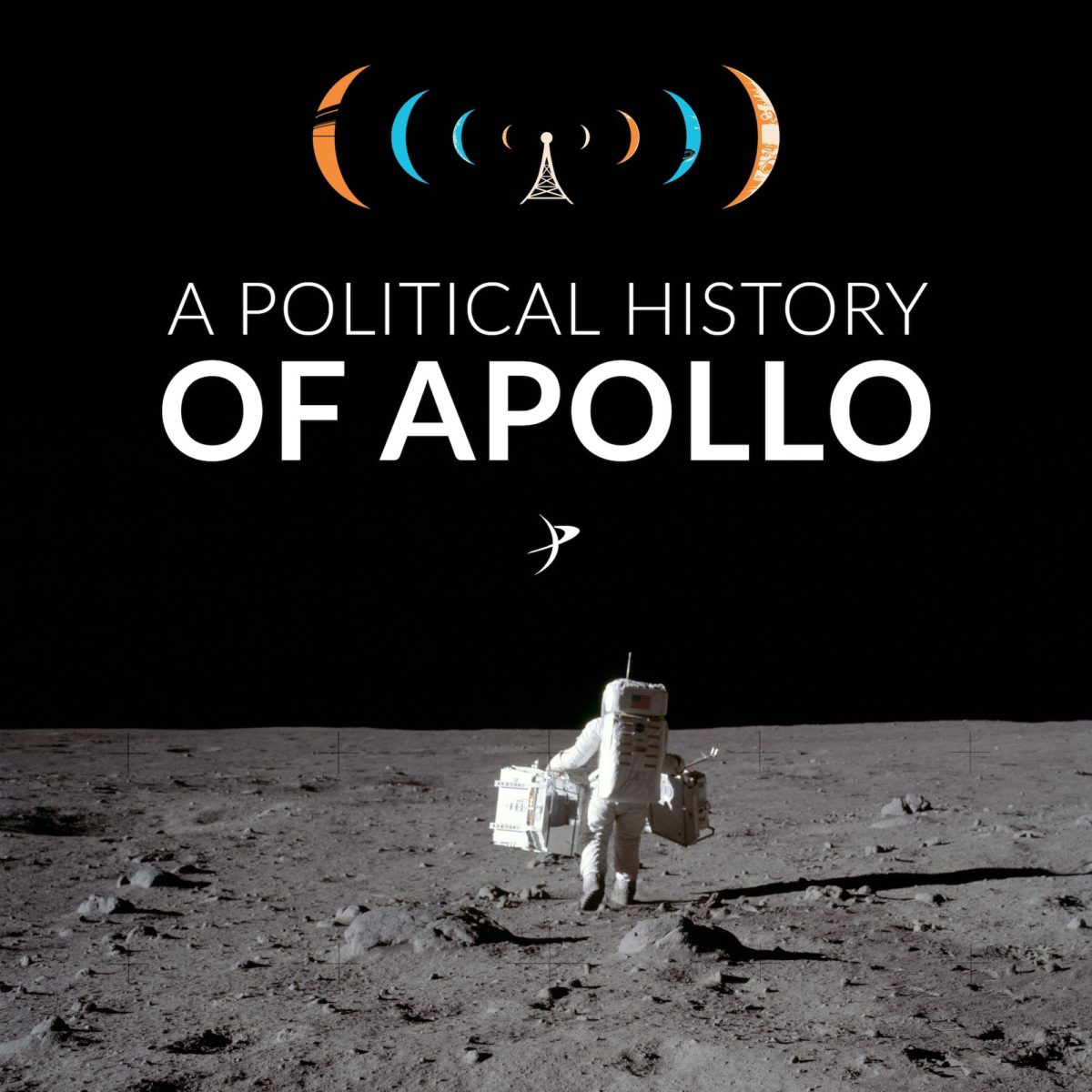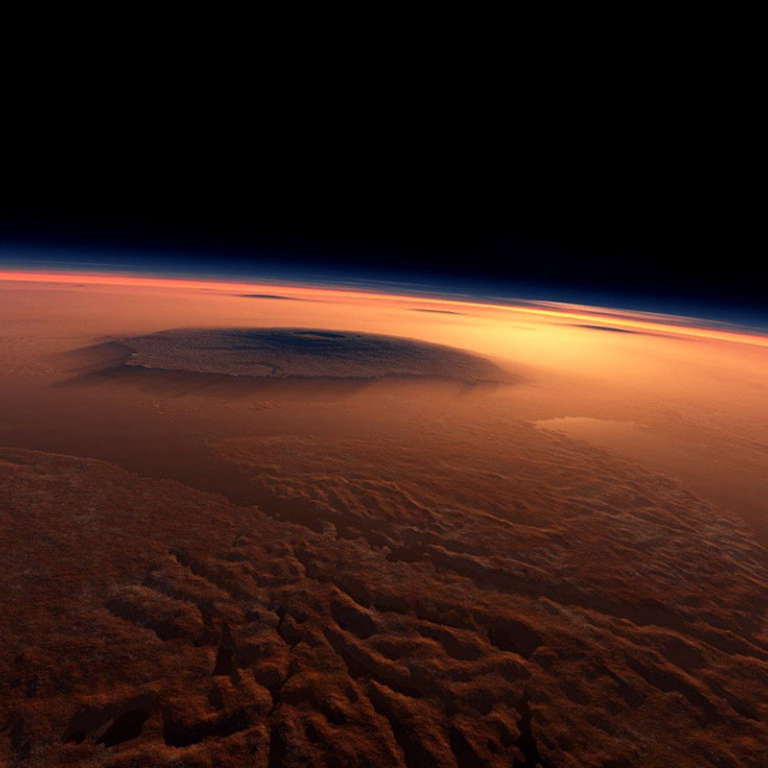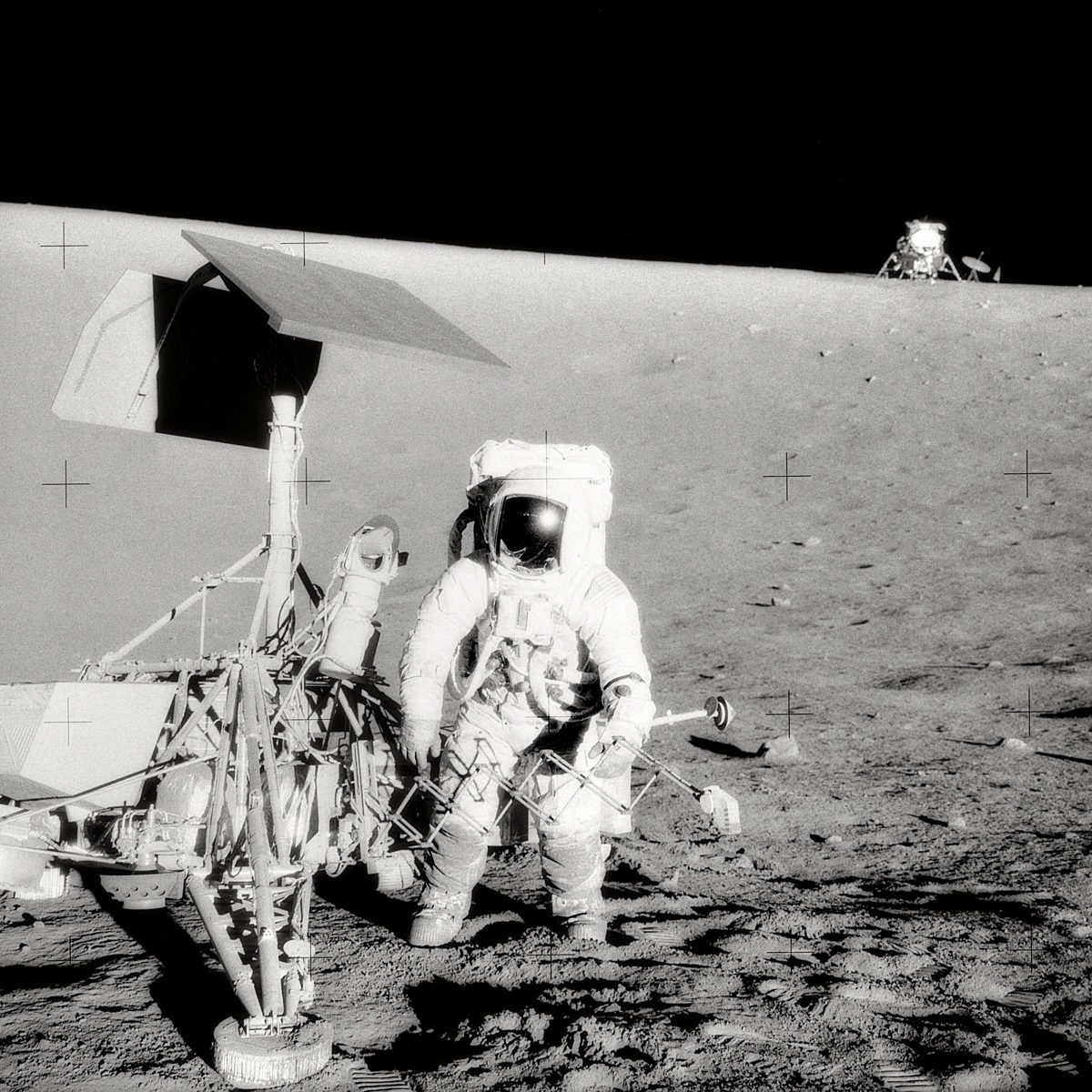Since 2002, Planetary Radio has visited with a scientist, engineer, project manager, advocate, or writer who provides a unique perspective on the quest for knowledge about our Solar System and beyond. The full show archive is available for free.
Search Planetary Radio
Mat Kaplan reports from the 2019 NIAC Symposium, a showcase of NASA-funded technologies hoping to revolutionize space exploration.
As NASA struggles to return humans to the Moon by 2024, it's worth asking: why did it stop in the first place? Space historian John Logsdon joins the show to discuss the politics behind the decision to abandon the Moon in 1972. Casey and Mat also discuss the proposal to offer a $2 billion prize for sending humans back to the Moon and establishing a base there, and why that's not good public policy.
After more than a decade's worth of work and billions of dollars spent, the United States could send humans to the surface of the Moon whenever it wanted. But after landing only six times, the country just walked away, closing down production lines, laying off tens of thousands of workers, and committing humans to low-Earth orbit seemingly indefinitely. Why did it end? And was this inevitable?
Historian John Logsdon discusses his new book, Ronald Reagan and the Space Frontier It explores the legacy of the 40th president’s major space policy decisions. We look at four major topics: early efforts at commercializing space, the survival crisis for planetary exploration, the Space Shuttle, and the decision to build the space station.
The Dean of space policy, John Logsdon, returns with stories and a new book of original documents that shaped the US space program from the birth of NASA to SpaceX. Planetary Society CEO Bill Nye reports in from this year’s International Astronautical Congress in German, while Senior Editor Emily Lakdawalla wraps up a working tour of New Zealand. Then join Bruce and Mat for this week’s What’s Up.
Space historian John Logsdon remembers American hero John Glenn. Planetary Society CEO Bill Nye was a big fan of the Friendship 7 astronaut—less so the new Star Wars movie. Then we get an update on the Giant Magellan Telescope from Patrick McCarthy.
Space historian and policy expert John Logsdon joins Mat Kaplan for a fascinating conversation about how the US could have lost the race to the moon.
Scott Hubbard and John Logsdon led the Humans Orbiting Mars Workshop last spring. They return with Casey Dreier as the report on that workshop is released to the world.
A human mission to orbit Mars might be possible by 2033, and it might be accomplished at reasonable cost and with existing or nearly-ready technology. Three leaders of a recent Washington DC conference on this topic provide a report.
It was a terrible, tragic week for commercial space development. Historian and space policy analyst John Logsdon helps up understand the greater meaning of the SpaceShipTwo and Antares disasters on this special edition of Planetary Radio, with additional thoughts from Bill Nye.
The National Research Council released its long-awaited report June 4th. Distinguished space policy analyst John Logsdon returns to Planetary Radio with his take on this latest attempt to determine the proper role of humans in space.
Our special live show at the National Air and Space Museum continues with curator David DeVorkin, Space Policy Institute founder John Logsdon, Bill Nye the Science Guy, Planetary Society blogger Emily Lakdawalla and science rapper Funky 49.
Join us for the first half of a conversation with David DeVorkin, John Logsdon and Bill Nye.


 Explore Worlds
Explore Worlds Find Life
Find Life Defend Earth
Defend Earth













